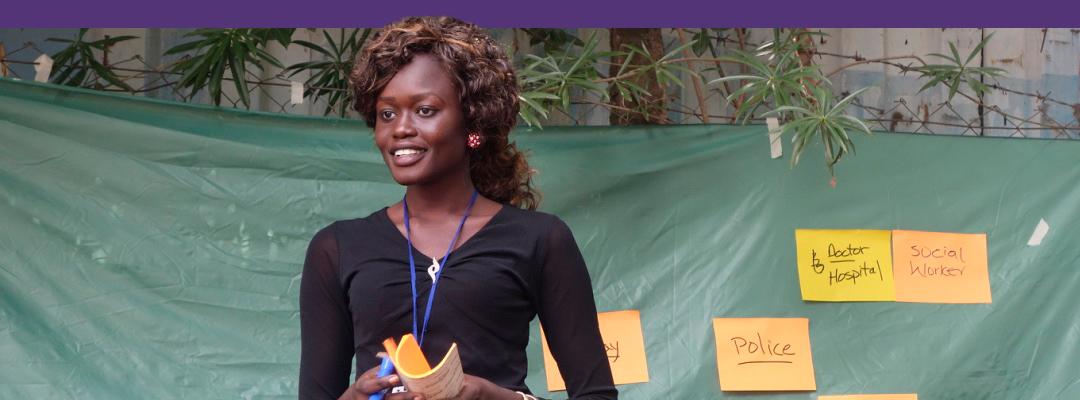Country- & Community-led Approaches
Violence against women exists in every country in the world and spans educational, economic and cultural divisions. Violence comes in many forms, and is most frequently inflicted by family members or partners, but it also happens at the hands of strangers or authority figures. Not only is violence against women a violation of universal human rights, it also poses severe health, economic and social consequences for individuals, families and ultimately, for society.
The Global Women's Institute (GWI) develops rigorous and ethical research methods; works with local leaders to modify and implement research projects; and trains new researchers on how best to gather data. By developing rigorous evaluations to measure change, GWI can improve understanding of what works to reduce violence against women and girls. GWI collaborates with communities to design interventions that adapt evidence-based solutions for preventing violence, improving gender equality and changing social norms. GWI analyzes the findings and shares them to expand the knowledge base and to catalyze further change within communities, governments and countries
Nicaragua
Making Progress Over 20 Years in the Community of León
Two decades ago, Dr. Mary Ellsberg conducted the first prevalence study of violence against women in Nicaragua. The Nicaraguan Network of Women Against Violence, Umeå University and Universidad Nacional Autónoma de Nicaragua (UNAN) León collaborated on this pioneering study in León, Nicaragua.
The 1995 study, Candies in Hell, showed that over 50 percent of women had experienced physical domestic violence in their lives, and one out of four had experienced violence in the 12 months prior to the study.
Using Evidence for Action
The research and data became the proof needed to expose a pervasive crime and demand government action. Mass public appeals just before national elections, led Nicaragua’s government to pass the first law making domestic violence a crime. This law became a powerful statement and tool for change.
During the ensuing years, many reforms were implemented, such as specialized police stations for women and children, shelters and crisis centers run by women’s organizations, and large-scale campaigns to raise awareness on violence against women as a public health and human rights issue.
Sharing Successful Methods
Twenty years later, GWI partnered again with UNAN Leon, and with the Nicaragua NGO InterCambios, to carry out a follow-up study in 2016.
Results show a sharp reduction in violence against women and girls (VAWG) in the León region and a much greater awareness among women of their right to be free of violence.
Gathering the lessons learned in León, GWI is working with other communities to apply effective interventions, measure progress, and grow the knowledge base about what works best across different settings.
"After he beat me he would court me, and buy me clothes, but my grandma would say to me, ‘Sweetheart, what good are candies in hell?"
Ana Cristina
Candies in Hell, 1995
Haiti
Evaluating Program for Changing Social Norms
In Haiti, GWI supported and assessed efforts to transform gender norms and contribute to a reduction of violence against women and girls (VAWG). The Rethinking Power program is a Haitian-based, phased community mobilization intervention that consists of three components: one that focuses on the whole community (SASA!), one that focuses on girls (Power to Girls) and one focused on people with disabilities (Safe and Capable). The program’s model was originally designed in Uganda by Raising Voices and was adapted by Beyond Borders, a humanitarian organization based in Haiti. GWI evaluated the implementation of the Rethinking Power program in the Southeast Department of Haiti using a mixed-methods approach, measuring the impact of the model on women and girls’ experiences of violence. Overall, this evaluation found that VAWG fell by half among women and girls living in the program areas - showing that it is possible to prevent violence in crisis affected settings.
See our evaluation reports: Main Results Report and Safe and Capable Report




